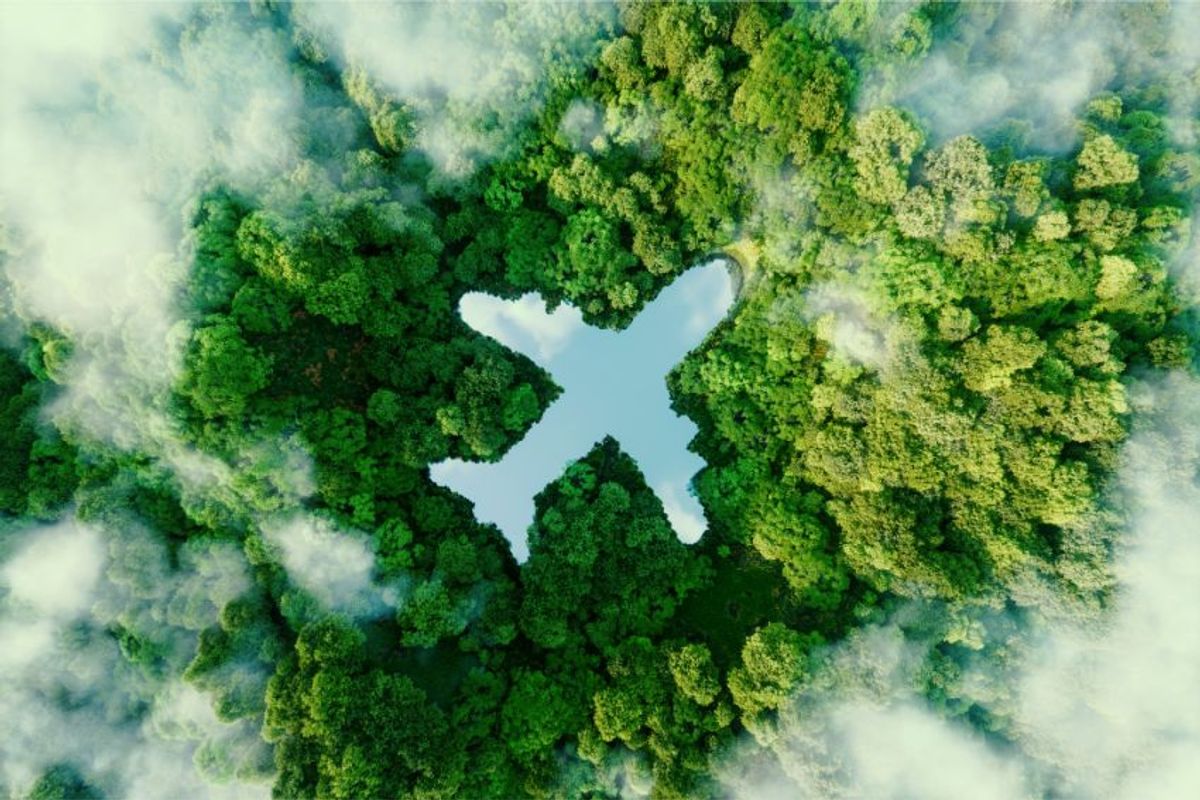Business travellers not walking the talk on sustainability – GBTA panel

Business travellers in Europe are increasingly aware of sustainability, but this is not translating into action, according to a c-suite panel of airline executives speaking at the GBTA Europe conference in Copenhagen this week.
In a discussion centred on industry disruption, executives from SAS, Swiss and Finnair collectively noted a “gap” between willingness and action among their corporate clients when it comes to selecting more sustainable travel options.
In the case of airlines, the ‘sustainable’ option often means paying an additional sum for alternative aviation fuel to be used anywhere on the carrier’s network or purchasing additional carbon offset options.
“We still see a big gap between thinking [about sustainability] and acting accordingly,” said Paul Verhagen, executive vice president and chief commercial officer at SAS.
“In our case, and I don’t think it’s much different in other airlines, just 1.5 per cent of passengers – corporate travellers included – act accordingly. The say-do gap is very big,” he said.
Heike Birlenbach, chief commercial officer at Swiss, part of the Lufthansa Group, said uptake of the group’s Green Fares, which include a price component for offsetting the carbon emissions associated with the passenger’s flight, has been muted.
“It’s still a single digit, so there’s a lot of talking, but the activity rate is still low,” she said.
Neverthless, Birlenbach noted that uptake of the group’s Green Fares is higher than adding carbon compensation as an auxiliary option.
“We believe that if we make it simple and include [carbon compensation] in the fare it might make a difference,” she said.
In regional spending analysis released earlier this week, the Global Business Travel Association observed a “heightened awareness of environmental concerns” among European business travellers, with 22 per cent of travellers saying that limiting their carbon emissions is their top priority when travelling, compared to a global average of 16 per cent.
According to GBTA’s survey of more than 1,000 Europe-based business travellers, 40 per cent choose more sustainable options for flights, compared to the global average of 41 per cent. Nearly one-third of European business travellers (29 per cent) opted for train travel on their last trip, compared to a global average of 19 per cent.
Additionally, 42 per cent of respondents said they “always” or “often” think about carbon emissions when deciding whether to travel for work in the first place. This compares to 36 per cent in North America and 35 per cent in Asia Pacific.
Comparably, global research conducted by BCD in August found sustainability was among the least important factors to influence air travel choices. The survey of more than 1,300 business travellers revealed that two-thirds never or rarely take environmental considerations into account if they come at a higher cost.
Simon Large, chief customer officer at Finnair conceded that “sustainability is at the forefront of our conversations… but translating something that’s at the forefront of your mind to something you can actually do something about, that’s the hardest part.”
With reference to alternative aviation fuels, Large said more industry collaboration is needed to move the needle, and all three panellists appealed to the industry to help lobby for greater EU incentives – rather than taxes on aviation – to help fund increased development.
“We have to work together to solve this problem. It won’t fall to one part of the supply chain. It will be on all of us,” Large said.
SAS’s Verhagen added that “the biggest challenge for the industry is the balance between growth and sustainability”.
He pointed to the contrast between the Biden administration’s focus on incentives following a pledge to provide nearly $300 million in funding for alternative fuel production, with the EU’s regulatory approach and, in some European countries, an increase in taxes and air passenger duties.
“Europe has to get its act together in incentivising and putting money on the table to stimulate research and development [of alternative fuels]… If different parts of the world have different solutions, then it’s no longer a level playing field,” he said.
However, given the result of the US election on Tuesday – and considering how a Trump presidency might impact travel – momentum behind a green political agenda in the US may soon come to an abrupt halt.
In a separate session at the conference, The Times of London economics editor, Mehreen Khan, highlighted that green policies are losing popularity among European and UK consumers.
Sharing YouGov data for the Tony Blair Institute for Global Change, Khan illustrated how climate change has dropped down to fourth place on the priority list, whereas a few years ago “it would it have been number two or three”, according to Khan. Today, climate concerns are superseded by cost of living, heath care and immigration.
“There’s a bizarre paradox in the fact that people are a little more reticent about climate change but it has never been more important geopolitically,” she said, adding that in times of disruption or economic hardship, net-zero policy often falls to the wayside.
“Waves of disruption could become tsunamis in a Trump world… the economy, climate change, and the openness of our world – a lot of these things will become much narrower and that will matter not only to the US, but the world,” she said.
Related
Brits forced to pay fee to visit these 30 countries…
UK tourists will be required to pay a fee to visit 30 countries in Europe under new European Union (EU) travel rules.The rules mean British holidaymakers will n
The beautiful European island with just 148 locals
Irakleia is a beautiful island in the Minor Cyclades of Greece, nestled in the heart of the Aegean Sea and just an hour away from Naxos. Officially recorded t
Warning issued for Brits flying easyJet and Ryanair to popular…
Passengers flying with Ryanair, easyJet and British Airways should expect disruption (Picture: Urbanandsport/NurPhoto via Getty Images) Passenge










